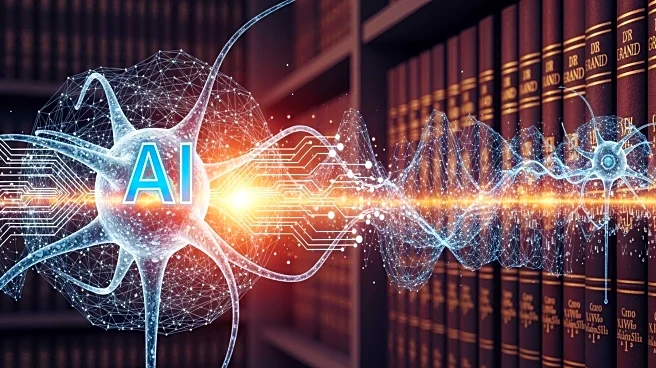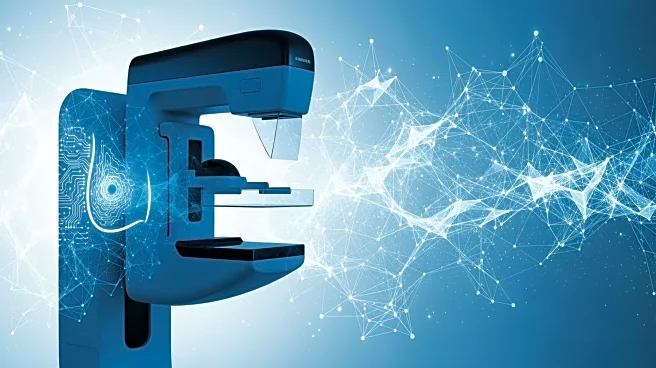What's Happening?
Suffolk University Law School and North Carolina Central University School of Law have been recognized for their innovative approaches to legal education, particularly in integrating technology and artificial
intelligence into their curricula. Suffolk Law has introduced a generative AI learning track for first-year students, focusing on ethical challenges and effective use in legal work. The school also offers a pioneering Legal Innovation and Technology Concentration, which includes courses on AI and legal services. Meanwhile, NCCU School of Law launched its Technology Law & Policy Center with a $5 million grant from Intel Corporation, offering a Law & Technology Certificate program. This program requires students to complete coursework in privacy, cybersecurity, and AI, along with tech-related pro bono service. NCCU also introduced the nation's first AI Governance Specialization, preparing students for certification in AI governance.
Why It's Important?
The integration of AI and technology into legal education is crucial as it prepares future lawyers to navigate a rapidly evolving legal landscape. By equipping students with skills in AI and technology, these law schools are addressing the growing demand for legal professionals who can handle complex technological challenges. This innovation not only enhances the employability of graduates but also positions them to lead in areas such as privacy, cybersecurity, and AI governance. The emphasis on real-world applications and pro bono service reflects a commitment to social justice and access to justice, ensuring that graduates are not only technically proficient but also socially responsible.
What's Next?
Both Suffolk and NCCU Law Schools are likely to continue expanding their technology-focused programs, potentially influencing other institutions to adopt similar initiatives. As AI and technology become increasingly integral to legal practice, these schools may further develop partnerships with tech companies and legal organizations to provide students with hands-on experience and networking opportunities. The success of these programs could lead to broader adoption of AI and technology curricula across law schools nationwide, setting new standards for legal education.
Beyond the Headlines
The focus on AI and technology in legal education raises important ethical and regulatory questions. As law schools train students in these areas, they must also address the potential for algorithmic bias and privacy concerns. The development of AI governance and ethical frameworks will be essential to ensure that technology is used responsibly in legal practice. Additionally, the emphasis on interdisciplinary learning highlights the need for collaboration between legal professionals and technologists to effectively address complex legal challenges.








